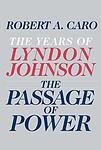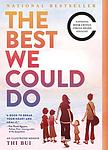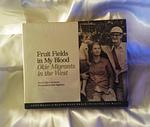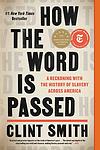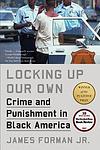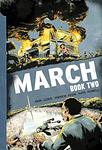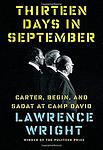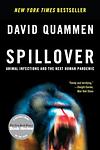The Greatest American "History" Books Since 2010
Click to learn how this list is calculated.
This list represents a comprehensive and trusted collection of the greatest books. Developed through a specialized algorithm, it brings together 300 'best of' book lists to form a definitive guide to the world's most acclaimed books. For those interested in how these books are chosen, additional details can be found on the rankings page.
Genres
The category of "History" in books refers to the study and interpretation of past events, societies, and cultures. It encompasses a wide range of topics, including political, social, economic, and cultural developments, as well as the lives of individuals and groups who have shaped the course of history. History books can be written from various perspectives and may focus on specific time periods, regions, or themes. They aim to provide readers with a deeper understanding of the past and its impact on the present.
Countries
Date Range
Reading Statistics
Click the button below to see how many of these books you've read!
Download
If you're interested in downloading this list as a CSV file for use in a spreadsheet application, you can easily do so by clicking the button below. Please note that to ensure a manageable file size and faster download, the CSV will include details for only the first 500 books.
Download-
1. The Immortal Life of Henrietta Lacks by Rebecca Skloot
The book tells the story of Henrietta Lacks, a poor African American tobacco farmer whose cells, taken without her knowledge in 1951, became one of the most important tools in medicine, vital for developing the polio vaccine, cloning, gene mapping, and more. Henrietta's cells have been bought and sold by the billions, yet she remains virtually unknown, and her family can't afford health insurance. The book explores the collision between ethics, race, and medicine; of scientific discovery and faith healing; and of a daughter consumed with questions about the mother she never knew.
-
2. The Warmth Of Other Suns by Isabel Wilkerson
"The Warmth of Other Suns" is a powerful and deeply moving narrative that chronicles the Great Migration, a significant event in American history that saw millions of African Americans leave the South in search of better opportunities and freedom from racial oppression. Through the compelling stories of three individuals, the book explores the challenges, triumphs, and sacrifices made by these courageous migrants as they embarked on a journey to find a new life in the North and West, ultimately reshaping the social and cultural landscape of America.
-
3. Say Nothing by Patrick Radden Keefe
This book is a gripping exploration of the Troubles in Northern Ireland, focusing on the disappearance of Jean McConville, a mother of ten who was abducted by the Irish Republican Army (IRA) in 1972. The narrative weaves together the stories of several key figures in the IRA, including Dolours Price, an IRA member who became disillusioned with the organization, and Brendan Hughes, a former IRA commander. The book delves deep into the political and personal complexities of the conflict, revealing the long-lasting trauma and moral ambiguities that continue to haunt those involved.
-
4. The Bully Pulpit: Theodore Roosevelt, William Howard Taft, And The Golden Age Of Journalism by Doris Kearns Goodwin
This historical work delves into the vibrant era of early 20th-century America, exploring the close friendship and eventual political rivalry between two presidents, Theodore Roosevelt and William Howard Taft. It also highlights the crucial role of muckraking journalists who, with the support of Roosevelt's bully pulpit, exposed corruption and galvanized public opinion. The narrative weaves together the personal and political dynamics that shaped the Progressive Era, showcasing how these leaders and the press collectively brought about significant reforms and forever transformed the American political landscape.
-
5. The Passage Of Power: The Years Of Lyndon Johnson by Robert Caro
"The Passage of Power: The Years of Lyndon Johnson" by Robert Caro is the fourth volume in his acclaimed biography of the 36th President of the United States. This book covers the years from 1958 to 1964, including Johnson's ascent to the presidency following the assassination of John F. Kennedy. Caro explores Johnson's struggles to pass civil rights legislation, his relationship with Kennedy's family, and his efforts to establish his own presidential legacy. The book also delves into Johnson's personal life, including his marriage to Lady Bird Johnson and his health issues. Overall, "The Passage of Power" provides a comprehensive and insightful look into one of the most complex and consequential figures in American political history.
-
6. Dark Money: The Hidden History Of The Billionaires Behind The Rise Of The Radical Righ by Jane Mayer
"Dark Money" by Jane Mayer is an investigative book that delves into the secretive world of political funding by wealthy individuals and corporations. Mayer exposes the hidden history of the billionaires behind the rise of the radical right, including the Koch brothers and their network of donors. She reveals how these donors have used their enormous wealth to shape American politics and policy, pushing their own interests and agendas while undermining democracy. Mayer's book is a sobering reminder of the dangers of unchecked political influence by the ultra-wealthy.
-
7. The Best We Could Do: An Illustrated Memoir by Thi Bui
This illustrated memoir captures the story of a Vietnamese family who fled to America after the fall of South Vietnam in the 1970s. The narrative traces their journey and struggles as refugees, while also delving into the family's complex history and relationships. The author uses her own experiences as a new mother to explore themes of parenthood, identity, and the enduring effects of displacement and trauma.
-
8. The Yellow House by Sarah M. Broom
"The Yellow House" is a memoir that tells the story of a hundred years of the author's family and their relationship to home in a neglected area of one of America's most mythologized cities, New Orleans. The narrative follows the author's journey from growing up in the titular house in New Orleans East, a largely ignored part of the city, to her pursuit of education and a career as a journalist, and her eventual return to New Orleans after Hurricane Katrina. The book explores themes of race, poverty, and inequity in America, while also being a deeply personal exploration of family, identity, and place.
-
9. Fruit Fields In My Blood by Toby Sonneman
"Fruit Fields In My Blood" is a poignant memoir that delves into the author's personal history and the broader narrative of fruit farming in America. The book intertwines the author's family saga, tracing their roots back to Eastern European immigrants, with the evolution of fruit cultivation and the changing landscapes of orchards across the United States. Through a blend of personal recollection, historical research, and interviews with other fruit growers, the narrative explores themes of heritage, labor, migration, and the intimate connection between people and the land that sustains them. The memoir is a tribute to the author's ancestors and the enduring legacy they have left in the fertile soil of the country's fruit fields.
-
10. Apollo’s Angels: A History Of Ballet by Jennifer Homans
"Apollo's Angels: A History of Ballet" by Jennifer Homans is a comprehensive and fascinating exploration of the history of ballet, tracing its origins in the French courts of the 17th century to its modern-day global prominence. Homans delves into the cultural and social contexts that shaped ballet over the centuries, examining the roles of gender, politics, and artistic innovation. She also provides insightful analyses of the most important ballets and choreographers throughout history, highlighting their contributions to the art form. A must-read for anyone interested in the history of dance and the arts.
-
11. How The Word Is Passed: A Reckoning With The History Of Slavery Across America by Clint Smith
"How The Word Is Passed" is a powerful and thought-provoking exploration of the legacy of slavery in America. Through a series of vivid and evocative essays, author Clint Smith takes readers on a journey across the United States, visiting sites that are deeply connected to the history of slavery and its aftermath. From Monticello to Angola Prison, Smith offers a nuanced and insightful look at the ways in which slavery has shaped our country and continues to impact our lives today. With a clear-eyed and compassionate approach, "How The Word Is Passed" is a must-read for anyone interested in understanding the complex and ongoing legacy of slavery in America.
-
12. Bad Blood by John Carreyrou
This book delves into the riveting true story of a Silicon Valley startup that promised to revolutionize the medical industry with a groundbreaking device that could perform a full range of laboratory tests using just a few drops of blood. However, the company's charismatic founder's ambition and the immense pressure to succeed led to one of the most notorious cases of corporate fraud in recent history. Through extensive reporting and interviews, the narrative exposes how the company's misleading claims, toxic workplace culture, and unethical business practices put patients at risk, eventually leading to its dramatic downfall. The investigation into the company's practices not only captivated the nation but also raised critical questions about innovation, integrity, and regulation in the tech industry.
-
13. After The Music Stopped: The Financial Crisis, The Response, And The Work Ahead by Alan S. Blinder
After the Music Stopped is a comprehensive analysis of the 2008 financial crisis and its aftermath. Alan S. Blinder, a former vice chairman of the Federal Reserve, examines the causes of the crisis, the government's response to it, and the ongoing challenges facing the global economy. Blinder argues that the crisis was caused by a combination of factors, including lax regulation, excessive risk-taking, and a housing bubble. He also explores the various policy responses to the crisis, including the Troubled Asset Relief Program (TARP) and the Dodd-Frank Wall Street Reform and Consumer Protection Act. Finally, Blinder offers recommendations for preventing future financial crises and ensuring long-term economic stability.
-
14. Locking Up Our Own: Crime and Punishment in Black America by James Forman
This book delves into the complex and controversial issue of mass incarceration in the United States, particularly within the African American community. It explores the historical, social, and political factors that contributed to the high rates of black imprisonment. The author examines the role of African American leaders in advocating for tough-on-crime policies and their unintended consequences. The book is a thought-provoking analysis of the intersection of race, crime, and justice in America.
-
15. Thinking The Twentieth Century by Tony Judt, Timothy Snyder
This book is a profound intellectual history of the 20th century, presented through a series of engaging conversations between two eminent historians. It explores the major ideological currents of the century, including Marxism, socialism, liberalism, and fascism, while also delving into the personal experiences and reflections of one of the authors, who was facing a terminal illness during the discussions. The dialogue format allows for a dynamic exploration of how historical events, personal experiences, and intellectual debates have shaped our understanding of the modern world. Through these conversations, the book offers insights into the role of intellectuals and politicians in navigating the complex political landscapes of the 20th century, making it a compelling read for anyone interested in history, politics, and the power of ideas.
-
16. March: Book Two by John Lewis
This graphic novel continues the memoir of a prominent civil rights leader, chronicling his commitment to nonviolent protest in the fight for racial equality in the United States. It delves into his personal experiences during the early 1960s, including his participation in the Freedom Rides, the historic 1963 March on Washington, and his leadership in the Student Nonviolent Coordinating Committee. The narrative captures the intensity of the movement, the confrontations with segregationist forces, and the internal struggles within the civil rights organizations, all set against the backdrop of the growing civil rights movement and the push for legislation that would eventually lead to the Voting Rights Act of 1965.
-
17. Empire Of Cotton: A Global History by Sven Beckert
"Empire of Cotton" by Sven Beckert is a comprehensive global history of cotton, exploring its impact on the world economy, politics, and society from the 18th century to the present day. Beckert argues that cotton played a crucial role in the development of capitalism, colonialism, and imperialism, and that its production and trade were intimately linked to the exploitation of labor, the growth of slavery, and the rise of industrialization. The book offers a fascinating and thought-provoking perspective on the complex and often violent history of cotton and its enduring legacy in the modern world.
-
18. Thirteen Days In September: Carter, Begin, And Sadat At Camp David by Lawrence Wright
"Thirteen Days In September" by Lawrence Wright is a detailed account of the historic peace negotiations that took place between President Jimmy Carter, Israeli Prime Minister Menachem Begin, and Egyptian President Anwar Sadat at Camp David in September 1978. The book provides a behind-the-scenes look at the intense negotiations and personal dynamics between the leaders, as they worked to reach a peace agreement that would end decades of conflict in the Middle East. Wright's narrative is a gripping and informative account of a pivotal moment in modern history.
-
19. Spillover by David Quammen
The book explores the science behind zoonotic diseases—those that jump from animals to humans—and their increasing threat to global health. It delves into the origins and mechanisms of diseases such as Ebola, SARS, and HIV, tracing how these pathogens have crossed species barriers and spread through human populations. Through a combination of field research, interviews with scientists, and a detailed narrative, the book highlights the interconnectedness of human, animal, and environmental health, and stresses the importance of understanding these links to prevent future pandemics.
-
20. Freaks Of Fortune by Jonathan Levy
This book delves into the historical transformation of risk in American society, tracing how the once collective responsibility for misfortune evolved into an individualized obligation to manage uncertainty. It explores the emergence of insurance, corporate risk management, and personal responsibility as central to the American economic life, illustrating how these developments have shaped the modern capitalist society. Through a detailed examination of legal, cultural, and economic changes, the narrative reveals how the pursuit of wealth and the fear of financial ruin have driven Americans to a perpetual quest for security, fundamentally altering their relationship with the future and fortune.
-
21. Grant by Ron Chernow
"Grant" is a comprehensive biography of the 18th President of the United States, Ulysses S. Grant. Written by Pulitzer Prize-winning author Ron Chernow, the book explores Grant's early life, military career, presidency, and post-presidential years. Chernow portrays Grant as a complex and often misunderstood figure, highlighting his military genius and leadership during the Civil War, as well as his struggles with alcoholism and financial ruin later in life. The book also delves into Grant's relationships with his wife, Julia, and political figures such as Abraham Lincoln and William Tecumseh Sherman. Overall, "Grant" offers a detailed and nuanced portrait of one of America's most significant historical figures.
-
22. The Great Leveler : Violence And The History Of Inequality From The Stone Age To The Twenty First Century by Walter Scheidel
This book delves into the historical patterns of inequality, arguing that significant reductions in inequality have only ever been brought about by cataclysmic events, which the author terms as the "Four Horsemen": war, revolution, state collapse, and plague. Through a comprehensive examination of societal structures from the Stone Age to the modern era, it presents a compelling case that peaceful reforms have rarely led to lasting decreases in inequality. The work challenges readers to confront the uncomfortable reality that significant improvements in equality have often been forged in the crucible of immense human suffering, thereby questioning the prospects for achieving future equality without such extreme catalysts.
-
23. The Club by Leo Damrosch
"The Club" by Leo Damrosch is a non-fiction book that explores the lives and friendships of a group of influential men in 18th century England known as the "The Club". The members of this group included notable figures such as Samuel Johnson, Edmund Burke, and Joshua Reynolds. Through their meetings and discussions, they shaped the intellectual and cultural landscape of their time, and their legacy continues to influence modern society. The book provides a fascinating insight into the lives of these men and the impact they had on the world around them.
-
24. The Restless Clock by Jessica Riskin
This book delves into the historical debate over the nature of life and the mechanistic view of living beings, tracing its evolution from the early modern period to the present. It challenges the long-standing notion that machines and organisms are fundamentally different, arguing instead for a more nuanced understanding of the relationship between mechanics and life. Through a detailed examination of philosophical, scientific, and technological developments, the work explores how ideas about automata and mechanical models have influenced and been influenced by evolving concepts of nature, life, and intelligence. The narrative weaves together stories of inventors, philosophers, and scientists who have contributed to the development of this complex discourse, offering a compelling argument for rethinking the boundaries between the animate and the inanimate.
-
25. Red Comet: The Short Life And Blazing Art Of Sylvia Plath by Heather L. Clark
"Red Comet" is a comprehensive biography of Sylvia Plath, one of the most iconic poets of the 20th century. The book covers her life from her childhood in Massachusetts to her tragic suicide at the age of 30, exploring her relationships, her struggles with mental illness, and her groundbreaking work in poetry and prose. Through meticulous research and interviews with those who knew Plath, author Heather L. Clark offers a nuanced and illuminating portrait of a complex and brilliant artist.
Reading Statistics
Click the button below to see how many of these books you've read!
Download
If you're interested in downloading this list as a CSV file for use in a spreadsheet application, you can easily do so by clicking the button below. Please note that to ensure a manageable file size and faster download, the CSV will include details for only the first 500 books.
Download



